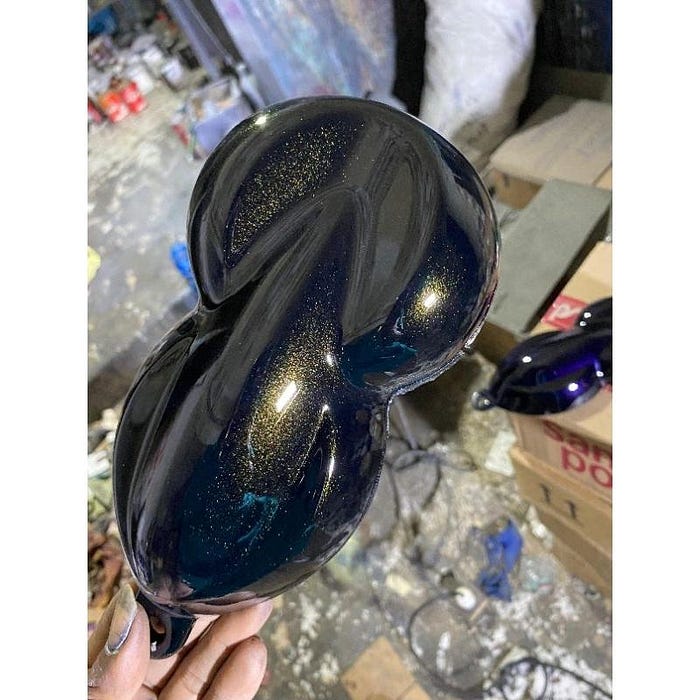"... whose fashionable stars (see Koons, Murakami et alia) pander to our appetite for spectacle and whatever’s new. I don’t mean ancient or even non-Western sculpture, either. I mean traditional European sculpture — celebrities like Bernini and Rodin aside — and American sculpture, too: the enormous universe of stuff we come across in churches and parks, at memorials and in museums like the Bode. The stuff Barnett Newman, the Abstract Expressionist painter, notoriously derided as objects we bump into when backing up to look at a painting.... [S]culpture skeptics from Leonardo through Hegel and Diderot have cultivated our prejudice against the medium. 'Carib art,' is how Baudelaire described sculpture, meaning that even the suavest, most sophisticated works of unearthly virtuosity by Enlightenment paragons like Canova and Thorvaldsen were tainted by the medium’s primitive, cultish origins. Racism notwithstanding, Baudelaire had a point. Sculpture does still bear something of the burden of its commemorative and didactic origins. It’s too literal, too direct, too steeped in religious ceremony and too complex for a historically amnesiac culture. We prefer the multicolored distractions of illusionism on flat surfaces, flickering in a movie theater or digitized on our laptops and smartphones, or painted on canvas. The marketplace ratifies our myopia, making headlines for megamillion-dollar sales of old master and Impressionist pictures but rarely for premodern sculptures...."
From an essay by Michael Kimmelman, published in the NYT in 2008, which I'm reading this morning because I blogged it at the time with my tag "sculpture" and I'm going through all my old posts with that tag looking for things that deserve my new tag "destruction of art."
The new tag is something I'd thought about creating for a very long time. I've been interested in violence directed at art much longer than I've been writing this blog — at least as far back as 1974 — but somehow my resistance to tag proliferation kept me from breaking this subtopic out of my generic topics "sculpture" and "art." There was also the "protest" tag. "Destruction of art" is (usually) a subtopic of that one too. But the pulling down of statues of Junipero Serra and Francis Scott Key — last night in San Francisco — finally dragged me over the line.
Speaking of Junipero Serra, I remember Richard Serra and his "Tilted Arc." I was one of the workers of lower Manhattan in the 1980s who rankled at the hostility the artist expressed toward mere pedestrians. I've written about that a few times. The people in the plaza have feelings and interests and may richly resent the impositions of artist ego and elitist civic pride. Once art is in place, it demands admiration, and what happens? It might be ignored — that's what Kimmelman fretted about — and it might be attacked — the present-day rage.
I'd like to look up what the "sculpture skeptics" — Leonardo, Hegel, Diderot, Baudelaire, et al. — had to say. Oddly, they — at least some of them — expressed racism. The sculpture skeptics of today style themselves as anti-racists. But there's resonance in Kimmelman's summary of the skepticism:
The new tag is something I'd thought about creating for a very long time. I've been interested in violence directed at art much longer than I've been writing this blog — at least as far back as 1974 — but somehow my resistance to tag proliferation kept me from breaking this subtopic out of my generic topics "sculpture" and "art." There was also the "protest" tag. "Destruction of art" is (usually) a subtopic of that one too. But the pulling down of statues of Junipero Serra and Francis Scott Key — last night in San Francisco — finally dragged me over the line.
Speaking of Junipero Serra, I remember Richard Serra and his "Tilted Arc." I was one of the workers of lower Manhattan in the 1980s who rankled at the hostility the artist expressed toward mere pedestrians. I've written about that a few times. The people in the plaza have feelings and interests and may richly resent the impositions of artist ego and elitist civic pride. Once art is in place, it demands admiration, and what happens? It might be ignored — that's what Kimmelman fretted about — and it might be attacked — the present-day rage.
I'd like to look up what the "sculpture skeptics" — Leonardo, Hegel, Diderot, Baudelaire, et al. — had to say. Oddly, they — at least some of them — expressed racism. The sculpture skeptics of today style themselves as anti-racists. But there's resonance in Kimmelman's summary of the skepticism:
Sculpture does still bear something of the burden of its commemorative and didactic origins. It’s too literal, too direct, too steeped in religious ceremony and too complex for a historically amnesiac culture. We prefer the multicolored distractions of illusionism on flat surfaces, flickering in a movie theater or digitized on our laptops and smartphones, or painted on canvas.We — some of us — prefer the multicolored distractions of illusionism on the flat surface of the embedded video on Twitter as protesters drag down another stately chunk of metal.
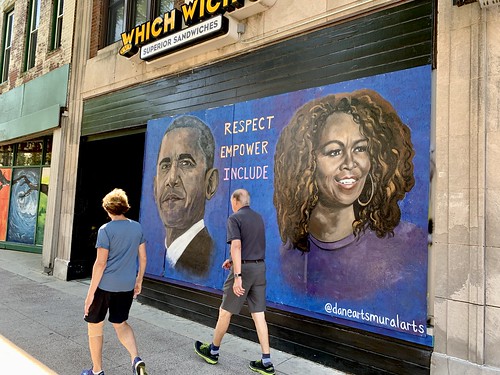
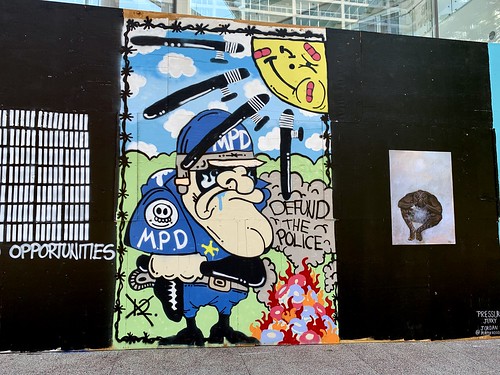
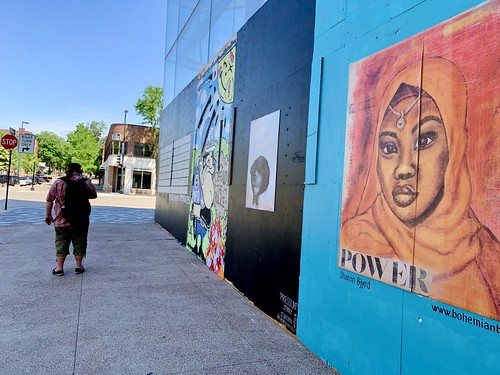
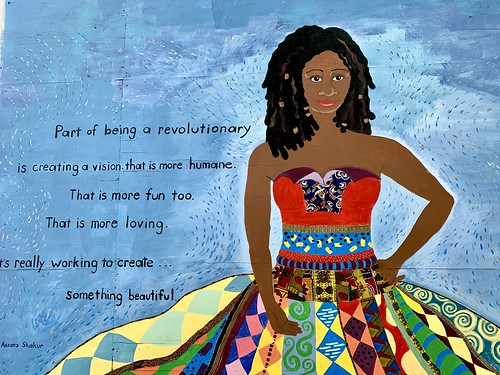

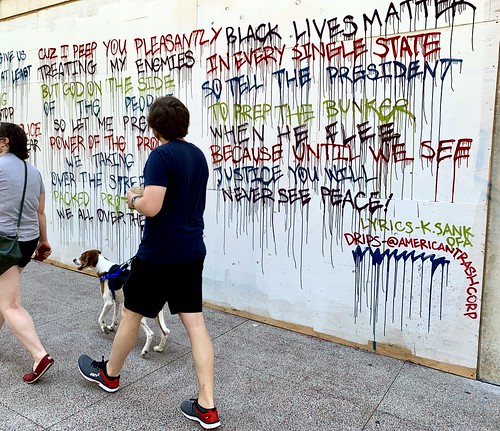
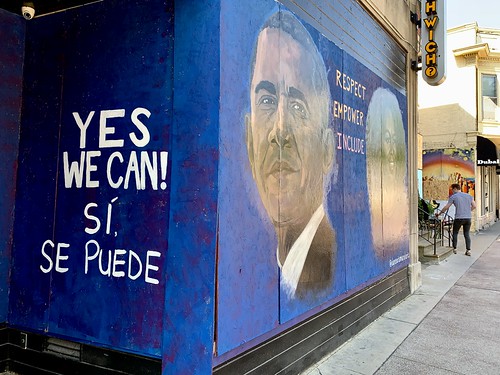
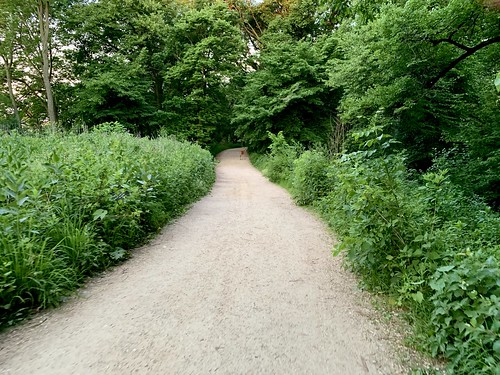
.jpg)

